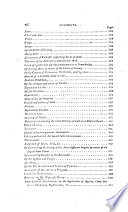 | Isaac Dalby - Mathematics - 1806 - 526 pages
...explained in the Arithmetic, Art. 161, 187, thus; Since /xr*—1 = /, therefore r"~~l = -f : and because the logarithm of any power of a number is equal to the logarithm of that number multiplied by the index or exponent denoting the power (187 Arith.) therefore (72 — l)... | |
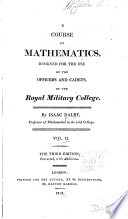 | Isaac Dalby - Mathematics - 1813 - 538 pages
...e*I>lained in the Arithmetic, Art. 161, 187, thus: Since/" xr " " =: /, therefore r" " =^.: and because the logarithm of any power of a number is equal to the logarithm °f that number multiplied by the index or exponent denoting tiiepower(187- Arith.) therefore (n —... | |
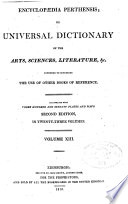 | Encyclopedias and dictionaries - 1816 - 746 pages
...is the logarithm of _ a ; and fince n may be either a whole number, or a fraction, it follows, that the logarithm of any power of a number is equal to the logarithm of that number, multiplied by the exponent of the power ; alfo, that the logarithm of any root of a number... | |
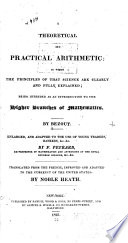 | Bézout - Arithmetic - 1825 - 258 pages
...The sum of the logarithms of two numbers is equal to the logarithm of their product, number 227. 92. The logarithm of any power of a number is equal to the logarithm of that number, multiplied by the index of the power, number 228. 93. The logarithm of the root of a number... | |
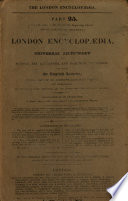 | Thomas Curtis (of Grove house sch, Islington) - 412 pages
...is the logarithm of о *; and, since n may be either a whole number or a fraction, it follows, that the logarithm of any power of a number is equal to the logarithm of that number, multiplied by the exponent of the power ; also, that the logarithm of any root of a number... | |
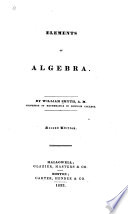 | William Smyth - Algebra - 1833 - 288 pages
...raising both members to the mth power, we have amx — ytn whence the logarithm of yx= mx = m log y. That is, the logarithm of any power of a number is equal to the product of the logarithm of this number by the exponent of the power. To form any power whatever of... | |
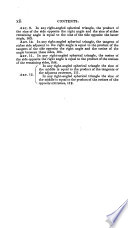 | George Darley - 1835 - 142 pages
...numbers is equal to the difference of their logarithms, 7ART. 5. The logarithm of the power of any number is equal to the logarithm of the number multiplied by the index of the power, 8. AHT. 6. The logarithm of the root of any number is equal to the logarithm of... | |
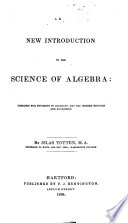 | Silas Totten - Algebra - 1836 - 360 pages
...we shall have, by supposing the logarithms of both members known, 1.6* = lr It has been shown, that the logarithm of any power of a number, is equal to the logarithm of the number ilself, multiplied by the exponent of the power (111) ; hence. \.b* = x \.b, and therefore we have,... | |
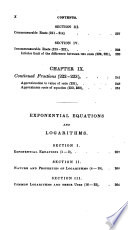 | Benjamin Peirce - Algebra - 1837 - 302 pages
...to each other, we have log. mmm &c. = log. m -f- log. m -\- log. m -|- &.c. or log. mn = n log. TO ; Logarithm of Root, Quotient, and Reciprocal. that...exponent of the power. 10. Corollary. If we substitute m = Vp, in the above equation, it becomes log. p = n log. or , " log. n log. V>= -~n that is, the logarithm... | |
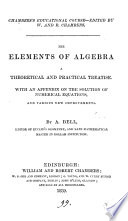 | Andrew Bell (writer on mathematics.) - 1839 - 500 pages
...= - or e"' = -; and hence x — ж'= l ~, У У1 У' or l?L = ly — ty (503.) ' The logarithm of a power of a number is equal to the logarithm of the number multiplied by the exponent of the power.1 If ax = y, then а«.т = yn ; and therefore nx = lyn, or ly" = nly (504.) ' The logarithm... | |
| |